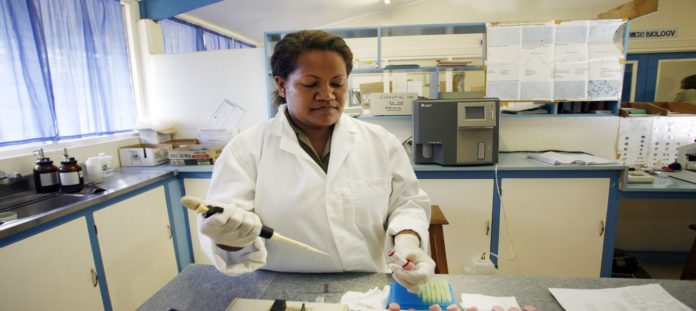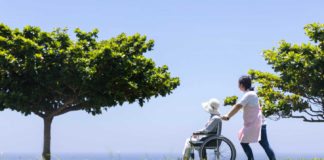
While the recent reopening of Pacific country borders has been largely welcomed, many now fear doing so could enable the spread of newly-declared public health emergency, monkeypox, with dozens of cases already recorded in neighboring Australia and New Zealand.
One case of the virus, previously found only in Africa, has likewise been reported in New Caledonia.
Fijian Head of Health Protection Aalisha Sahukhan said her nation was on high alert.
“We need to understand what this disease is, so we are better prepared to respond if we were to get a case in Fiji,” Sahukhan told the Fiji Broadcasting Corporation.
Daoni Esorom, responsible for Papua New Guinea’s pandemic response, meanwhile, said the region must be able to counter new monkeypox threats while simultaneously “responding to the COVID-19 pandemic.” The Ministry of Health and Medical Services of the Solomon Islands similarly said enhanced surveillance and testing would now occur.
“There is no need to panic at this stage,” the ministry wrote.
The monkeypox outbreak represents a global health emergency, the World Health Organization’s highest level of alert, WHO Director-General Tedros Adhanom Ghebreyesus said https://t.co/knjO2BySOdpic.twitter.com/vYCLstHhTP
— Reuters (@Reuters) July 23, 2022
Initial symptoms of the virus include headaches, chills, and fever before rash and lesions appear.
The World Health Organization explains that the virus in the past has killed between 1% and 10% of people, before revealing that many of the cases reported in this current outbreak have been “identified among men who have sex with men.”
“Engaging communities of gay, bisexual, and other men who have sex with men to raise awareness is essential to protect those most at risk,” the organization wrote. “If you are a man who has sex with men, know your risk and take steps to protect yourself and others.”
Because almost 100% of cases between April and June have been among gay or bisexual men, LGBTQ+ activists fear stigmatization may hinder efforts to contain the spread, with leaders potentially less likely to invest in tackling it and individuals reluctant to come forward with symptoms for fear of being labeled as gay.
“Governments and businesses around the world only nominally cared about COVID-19 because they thought it might affect the health and wealth-building capability of the ruling class; they may be as unlikely to care about monkeypox as they have been about HIV,” writes Steven W. Thrasher for the Scientific American journal.
The Pacific is home to some of the world’s harshest anti-LGBTQ+ laws.
Marriage and sex between two men are outlawed in Tuvalu, Cook Islands, Kiribati, Papua New Guinea, Samoa, Solomon Islands, Brunei, and Tonga. Those found guilty can be subjected to death by stoning, jail time, or whippings.
Same-sex conduct was decriminalized, however, in Vanuatu and Fiji in 2007 and 2010, respectively.








